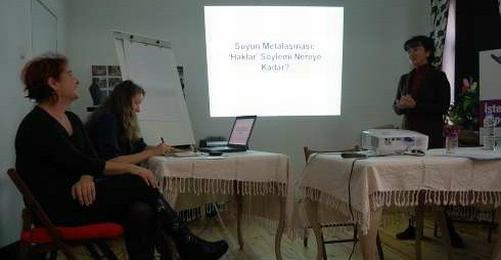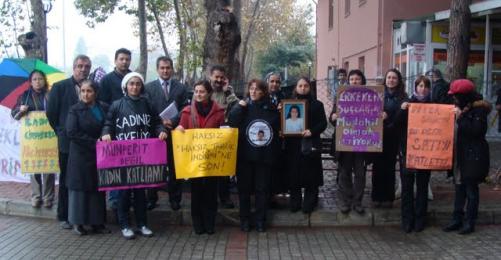"Speaking of a commodifiacation of water, we are not only talking about paying high prices for water, but we are also discussing the existence of humanity".
This quotation from the opening speech of Gaye Yılmaz contains a brief summary of the discussion panel on "The Affect of Capitalism, Poverty, War and Water on Women", organized by the Socialist Feminist Collective (SFK). Yılmaz depicted how matters in public hands such as health or education and water used in all branches of production started to be turned into commodifications. Yılmaz said that only after the 1970ies commodification emerged as a new sort of investment in order to stop the retracement of the capitalists' profit rates.
The "danger" of perceiving water as a human right
In Yılmaz's opinion it is dangerous to label the struggle against commodifiacation of water as a right.
"When we say 'Water is a right, it cannot be sold', all of us actually refer to the Universal Declaration of Human Rights. However, in article 17 of this charter, acquirement of private property is claimed as a human right as well. When the World Bank and the World Water Forum state that 'Water is a human right, thus it cannot be made a commodification', water can be sold under the same rhetoric".
Yılmaz admonished that the global process cannot be stopped by thinking locally, instead she suggested that "We have to target the system".
Women and water problems
Ece Kocabıçak spoke on the topic of "Women and the Wars for Water". She indicated that the women's struggle for water is not included in the 'water wars', "The ones who carry the water are women and girls. They carry 40 kg on average. Carrying this load means burning 30 percent of the daily calories consumption. This is also the reason for a warp of the women's vertebrae and pain in the back and the waist. Diseases of the kidneys and gall bladder due to contaminated water are frequently observed", Kocabıçak explains.
Kızılca Yürür talked about "Women and Water Problems in the Middle East". The fact that the states do not know the locations and capacity of ground water reservoirs paves the way to disorganized and illegal use of the water. Yürür said that Middle East countries have invested a lot of money in water purification technologies. Also nuclear power was used for some water purification technologies and the used chemicals were disposed into the sea water which led to a further pollution of the seas, Yürür pointed out.
Tuğba Özay Baki as the last speaker of the discussion panel explained how waste water affects women. In Istanbul districts like Kağıthane or Uzundere including poverty-stricken regions with partly underdeveloped infrastructure, waste water is permanently disposed directly into the rivers. Baki emphasized that people and women in particular living in the vicinity of those rivers are subject to serious health problems. A lack of education causes additional difficulty to raise the people's awareness. (YC/EÜ/VK)










